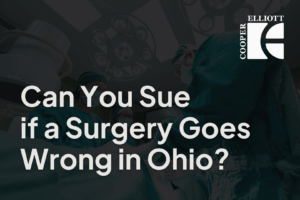Legal malpractice not only damages your trust in an attorney but can also cause harm in many long-lasting ways. As confusing and disheartening as it is, those who have been victims of legal malpractice can take action to protect themselves in a court of law.
Types of Harm Caused by Legal Malpractice
Legal malpractice occurs when your hired attorney loses your case or harms your interests through outright negligence, breach of fiduciary duty, or breach of contract. When you hire an attorney, you are trusting someone to solve a problem that you cannot solve. When attorney malpractice breaks this trust, the results are confusing and harmful.
Legal malpractice can take many forms. One common example is filing a case after the statute of limitations has run. In personal injury cases, this means that the injured person can no longer pursue their claim for damages against the party that injured them. Another example is immigration malpractice. In immigration cases, individuals who are in the United States on visas can be unexpectedly deported when an attorney fails to file paperwork properly. Malpractice can occur In business-transactional matters as well. These malpractice cases often arise when attorneys overlook tax issues, or their advice increases their client’s tax liability. This lack of attorney diligence can result in millions of dollars in tax payments that could have been prevented.
Statute of Limitations for Ohio Legal-Malpractice Claims
For a free legal consultation, call 614-481-6000
While it’s important to contact an attorney promptly to evaluate any legal claim, it’s especially important for legal malpractice cases. The Ohio statute of limitations for legal-malpractice cases is comparatively short—only one year. This means that if you wait longer than a year to consult with an attorney, it may be impossible to pursue your legal malpractice claim.
Challenge: Proving not One but Two Cases
The prime challenge in most legal-malpractice cases is not only proving negligence but also proving that the negligence caused harm, which means that legal-malpractice attorneys must prove two cases (referred to as proving the case-within-the-case): (1) your attorney committed malpractice and (2) this malpractice caused you harm that would not have otherwise happened.
Click to contact our personal injury lawyers today
For example, if malpractice occurred within a lawsuit, your malpractice attorney must prove that you would have won your case or had a better outcome had no malpractice occurred. In immigration cases, your malpractice attorney must prove that your citizenship would have remained intact had the original attorney correctly filed the case. In business-transactional matters, your malpractice attorney must prove that the transaction would have had a better outcome for you if it had been correctly structured.
Standard of Care
Complete a Free Case Evaluation form now
It’s important to note that legal malpractice isn’t a matter of an attorney who had two reasonable choices and went with one that happened to yield less than desirable results. That’s not malpractice, nor is it negligence. You need to be able to prove that the attorney failed to uphold a standard of care that most reasonable attorneys would meet—that a reasonable attorney would have done something else entirely, and that would have led to a better result for the client.
Expert Witnesses
Proving a legal malpractice case also involves selecting expert witnesses. These expert witnesses must be attorneys who are experienced in the relevant area of law, meaning that they are able to competently distinguish an error in judgement from malpractice. For example, an immigration malpractice case wouldn’t call for a general litigator as expert witness; an individual well-versed in immigration law would be better. At Cooper Elliott, we know to begin searching early on for attorneys who meet these criteria.
Providing Assistance
Learning that the attorney you trusted failed to do their best in representing you can be a difficult blow. But, not all firms handle legal malpractice cases for plaintiffs. You may have been in contact with a few firms that would not consider your malpractice case, and perhaps their denial of service has disheartened and concerned you. We’re open to talking about your case and helping you assess whether you may be a victim of legal malpractice. If it turns out you have been subject to legal malpractice, we can assist you in taking steps for judicial results. Let’s get a conversation going.
Connect with us. We’re here to help.
Call or text 614-481-6000 or complete a Free Case Evaluation form









































